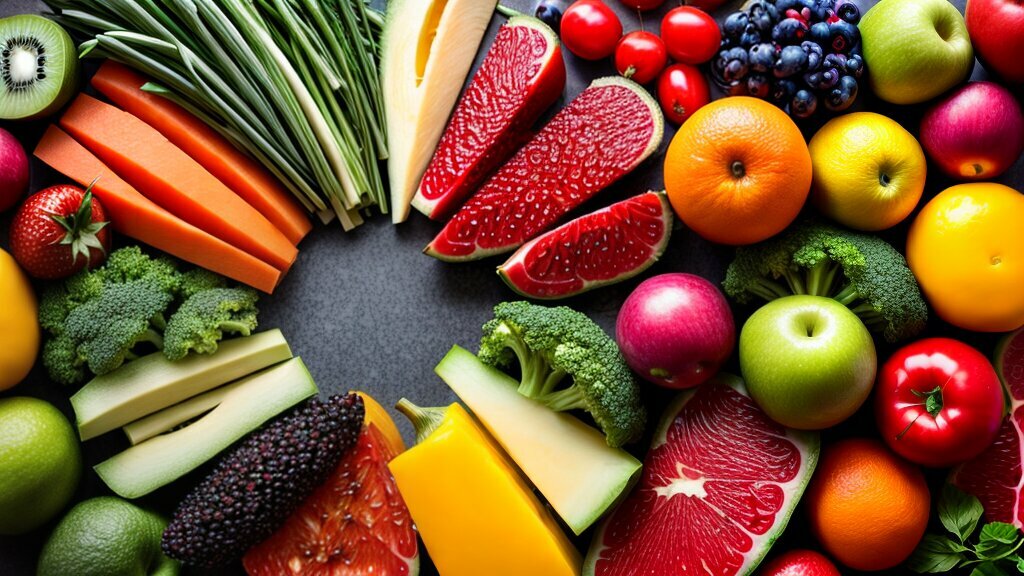Are you tired of spending a fortune on skincare products that promise to give you a flawless complexion? The secret to achieving radiant, healthy skin may be simpler than you think. By incorporating proper nutrition into your daily routine, you can improve your skin’s overall health and achieve a youthful glow.
While topical treatments can provide temporary relief for specific skin concerns, they do not address the root cause of skin issues. By prioritizing a healthy diet, you can provide your skin with the essential nutrients it needs to maintain optimal health from within.
Key Takeaways:
- Proper nutrition is essential for maintaining healthy, glowing skin.
- Topical skincare products may provide temporary relief, but a healthy diet addresses the root cause of skin issues.
The Basics of Skin Nutrition
Your skin is an important organ that requires proper nutrition to function optimally. Consuming a well-rounded diet rich in essential nutrients is crucial for maintaining healthy skin and a youthful glow. Here are some key points to keep in mind when it comes to natural skin nutrition:
The Importance of a Balanced Diet
A balanced diet is essential for promoting healthy skin. Incorporating a variety of whole foods, such as fruits, vegetables, lean protein, and whole grains, can provide the necessary macronutrients and micronutrients for optimal skin health. Avoiding processed foods and excessive sugar and sodium intake can also go a long way in improving the overall health of your skin.
Foods for Glowing Skin
Certain foods are particularly beneficial for promoting healthy skin. Brightly colored fruits and vegetables, such as berries, leafy greens, and carrots, are rich in antioxidants that protect against skin damage from free radicals. Omega-3 fatty acids found in fatty fish, nuts, and seeds can help to reduce inflammation and improve skin elasticity. Consuming these foods regularly can lead to a glowing complexion.
Vitamins and Minerals for Skin Health
Specific vitamins and minerals play important roles in maintaining healthy skin. Vitamin C is essential for collagen production and protects against sun damage, while Vitamin E is a powerful antioxidant that protects against premature aging. Zinc and selenium are minerals that promote skin healing and reduce inflammation. Incorporating foods rich in these nutrients, such as citrus fruits, nuts, and seafood, can help to maintain optimal skin health.
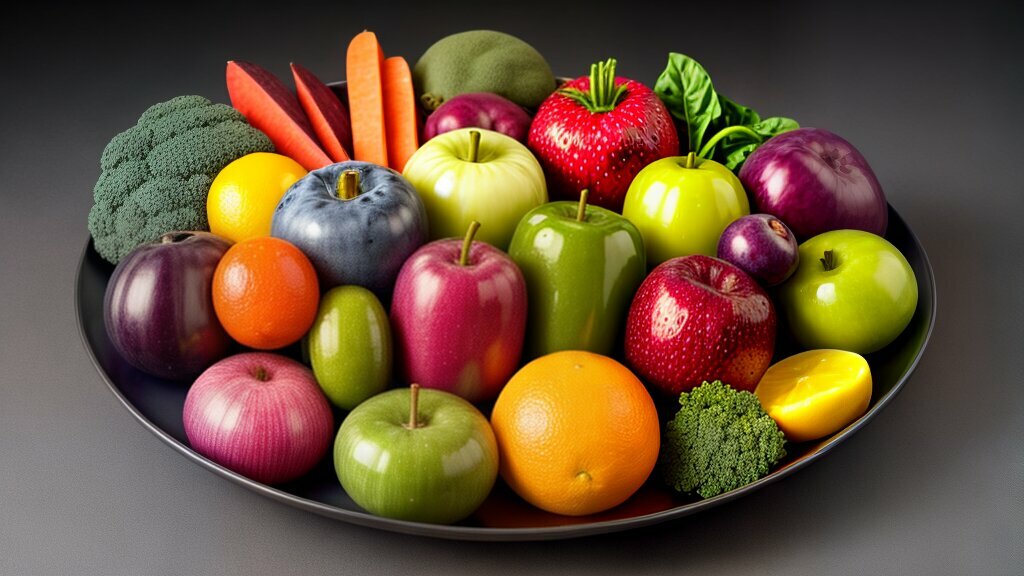
By prioritizing natural skin nutrition and consuming a balanced diet with skin-friendly nutrients, you can achieve and maintain healthy, radiant skin in Australia. Remember to incorporate a variety of whole foods, fruits and vegetables, healthy fats, and lean protein, as well as vitamins and minerals, into your daily meals for optimal skin health.
Collagen Boosting Foods for Skin Health
If you’re looking to achieve and maintain healthy skin, paying attention to your collagen levels is essential. Collagen is the protein responsible for maintaining skin elasticity and firmness, and it naturally declines with age.
Thankfully, there are many foods you can incorporate into your diet to boost collagen production and keep your skin looking youthful. These foods are rich in specific nutrients that contribute to collagen synthesis, including:
| Nutrient | Food Sources |
|---|---|
| Vitamin C | Oranges, kiwi fruit, red peppers, broccoli |
| Vitamin A | Sweet potatoes, carrots, spinach, kale |
| Protein | Lean meats, fish, beans, nuts |
Incorporating these collagen-boosting foods into your meals can help promote healthy skin from the inside out. Additionally, consider adding a collagen supplement to your routine to further enhance your skin’s elasticity and firmness.
Tip: For a tasty and collagen-rich meal, try a stir-fry with lean protein and vitamin C-rich vegetables like red peppers and broccoli.
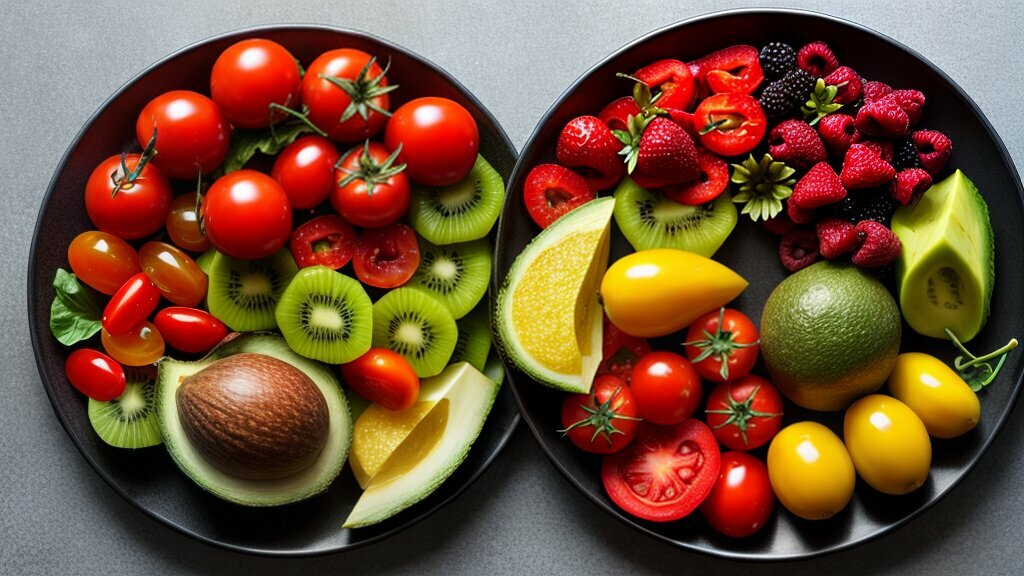
Hydration: The Key to Radiant Skin
Hydration is crucial for maintaining healthy skin. In fact, dehydration can lead to dry, dull, and flaky skin. The best way to stay hydrated is to drink plenty of water throughout the day. Experts recommend drinking at least eight glasses of water a day to keep your skin looking and feeling healthy.
In addition to water, you can also hydrate your skin from the outside by using a good moisturizer. Look for a moisturizer that contains natural ingredients like aloe vera, glycerin, or hyaluronic acid. These ingredients help to lock in moisture and keep your skin hydrated throughout the day.
Another way to hydrate your skin is to incorporate hydrating foods into your diet. Foods like watermelon, cucumber, and celery are high in water content and can help to hydrate your skin from the inside out.
| Hydrating Foods for Healthy Skin | Water Content (%) |
|---|---|
| Cucumber | 96.7 |
| Watermelon | 91.5 |
| Celery | 95.4 |
| Strawberries | 91.0 |
| Lettuce | 95.6 |
Incorporating these hydrating foods into your diet can help to improve the overall health and appearance of your skin. Try adding some sliced cucumber to your water for a refreshing and hydrating drink.
Remember, staying hydrated is essential for maintaining healthy, radiant skin. Drink plenty of water, use a good moisturizer, and incorporate hydrating foods into your diet for optimal skin health.

A Balanced Diet for Healthy Skin
To achieve and maintain healthy skin, it is essential to incorporate a balanced and nutritious diet into your daily routine. Eating a variety of whole foods rich in essential vitamins and minerals can help support healthy skin function, slow down the aging process, and enhance your complexion.
Below are some skin-friendly nutrients and the best food sources to incorporate into your diet:
| Nutrient | Food Sources |
|---|---|
| Vitamin A | Sweet potatoes, carrots, spinach, broccoli, eggs |
| Vitamin C | Oranges, strawberries, kiwi, red capsicum, broccoli |
| Vitamin E | Almonds, avocado, sunflower seeds, olive oil, spinach |
| Zinc | Oysters, beef, pumpkin seeds, lentils, cashews |
| Omega-3 Fatty Acids | Fatty fish, chia seeds, flaxseeds, walnuts, soybeans |
Remember to also incorporate macronutrients such as protein, complex carbohydrates, and healthy fats into your diet for a well-rounded approach to skin health.
Healthy Fats and Skin Health
Healthy fats are important for skin health as they help to keep the skin hydrated and supple. Omega-3 fatty acids, in particular, have been shown to reduce inflammation and improve skin elasticity.
Some sources of healthy fats include:
- Fatty fish (such as salmon and tuna)
- Nuts and seeds (such as almonds and chia seeds)
- Avocado
- Coconut oil
By incorporating these skin-friendly nutrients and foods into your diet, you can support healthy skin function and achieve a radiant complexion.
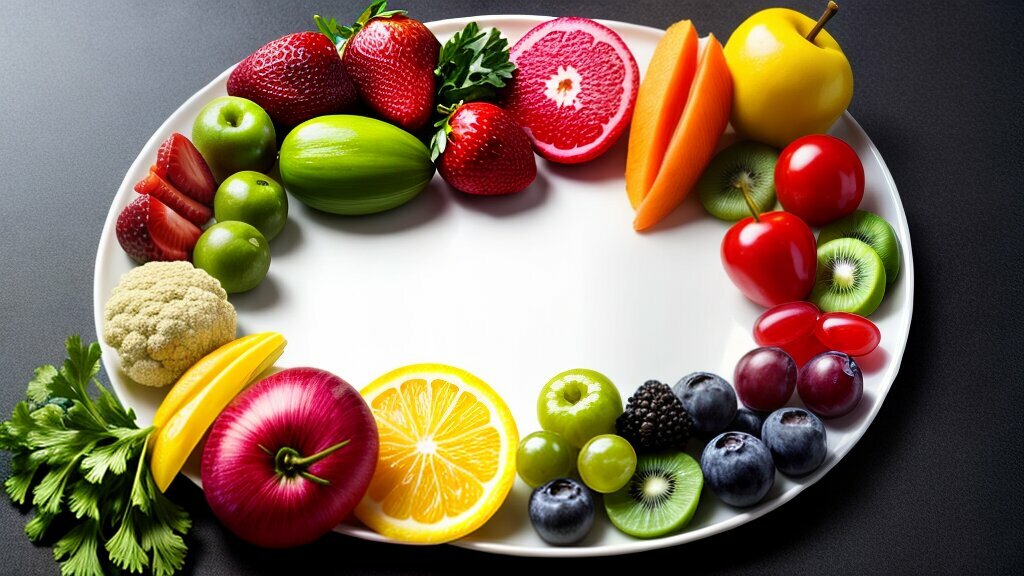
Nutritional Supplements for Optimal Skin Health
While a healthy diet is key to achieving and maintaining healthy skin, some individuals may benefit from incorporating nutritional supplements into their skincare routine. These supplements can provide an additional boost of skin-friendly nutrients that may be lacking in your daily diet.
One important nutrient to consider is vitamin C, which is essential for collagen production and protects against skin damage caused by free radicals. Vitamin E is also important for skin health, as it helps to protect against UV damage and improve skin hydration.
Omega-3 fatty acids are another essential nutrient for maintaining healthy skin, as they help to reduce inflammation and improve skin barrier function. Additionally, probiotics can help to balance the gut microbiome, which can in turn improve skin health and reduce inflammation.
When choosing nutritional supplements for skin health, be sure to consult with a healthcare professional to ensure that you are taking supplements in safe and appropriate amounts. Look for high-quality supplements from reputable brands to ensure that you are getting the most benefit for your investment.
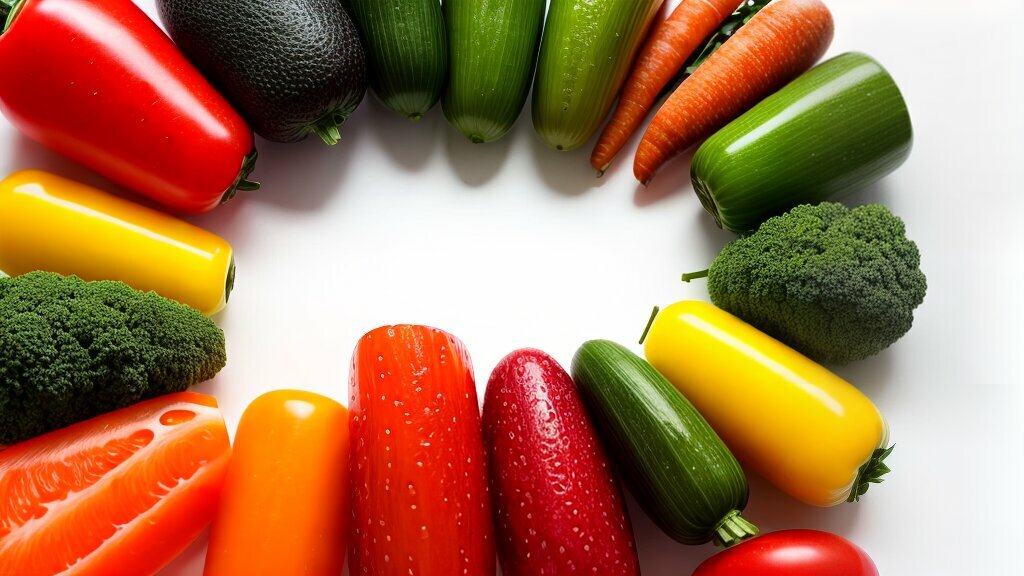
Lifestyle Habits for Improved Skin Health
To achieve and maintain optimal skin health, it is important to incorporate healthy lifestyle habits into your skincare routine. Here are some tips and practices you can adopt:
- Exercise regularly: Engaging in physical activity increases blood flow and circulation, helping to deliver essential nutrients and oxygen to your skin cells. Aim for at least 30 minutes of moderate to intense exercise each day.
- Manage stress: Chronic stress can have a negative impact on skin health, contributing to inflammation and premature aging. Incorporate stress-reducing practices into your daily routine, such as meditation, yoga, or deep breathing exercises.
- Get enough sleep: Lack of sleep can lead to dark circles, puffiness, and an overall dull complexion. Aim for 7-9 hours of quality sleep each night to promote skin rejuvenation and repair.
- Protect your skin from the sun: Exposure to UV radiation can lead to premature aging, hyperpigmentation, and skin cancer. Always wear sunscreen with an SPF of 30 or higher, and limit your time in the sun, especially during peak hours.
- Practice good skincare habits: Cleanse your skin daily, avoid harsh products, and moisturize regularly to keep your skin hydrated and supple. Additionally, avoid touching your face frequently to minimize the spread of bacteria and prevent breakouts.
By incorporating these healthy habits into your skincare routine, you can help improve the overall health and appearance of your skin.
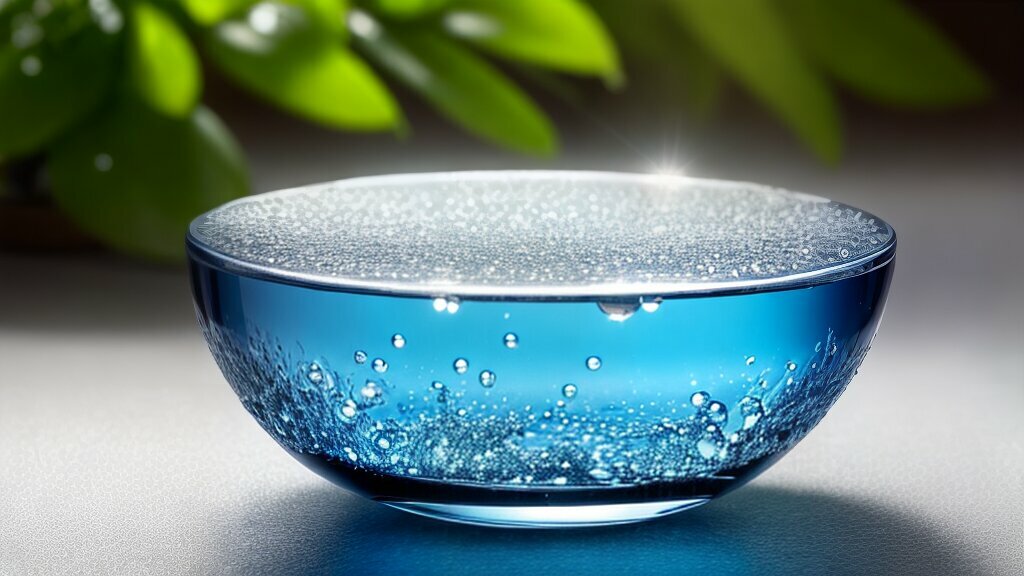
Conclusion
Congratulations! You are now equipped with the knowledge and tools to boost your skin health through essential nutrition. By incorporating skin-friendly foods and nutrients, staying hydrated, and maintaining healthy lifestyle habits, you can achieve and maintain a glowing complexion.
Remember to prioritize a balanced diet, rich in macronutrients and micronutrients, to provide your skin with the necessary building blocks for optimal health. Additionally, consider incorporating collagen-boosting foods and nutritional supplements to enhance skin elasticity and firmness.
Don’t forget the importance of hydration! Drinking adequate water can help improve skin texture and reduce the appearance of fine lines and wrinkles.
By following these tips and recommendations, you can achieve your best skin yet. Say goodbye to dull, lackluster skin and hello to a youthful, radiant complexion!
FAQ
Q: Why is nutrition important for skin health in Australia?
A: Nutrition plays a crucial role in maintaining healthy skin and a youthful glow. A well-rounded diet provides the essential nutrients that support skin health and help combat aging and skin conditions.
Q: What are some skin-friendly nutrients?
A: Certain nutrients, such as vitamins A, C, and E, omega-3 fatty acids, and antioxidants, are known to promote healthy skin. These nutrients help protect against damage, support collagen production, and maintain overall skin health.
Q: Which foods promote healthy skin?
A: Foods rich in antioxidants, such as berries, leafy greens, and nuts, can help improve skin health. Other skin-friendly foods include fatty fish, avocados, and sweet potatoes, which provide essential nutrients for maintaining a glowing complexion.
Q: Can collagen-boosting foods enhance skin health?
A: Yes, certain foods can naturally boost collagen production, which is essential for skin elasticity and firmness. Foods rich in vitamin C, like citrus fruits and bell peppers, and those with high levels of amino acids, such as bone broth and fish, can help support collagen synthesis.
Q: How does hydration contribute to radiant skin?
A: Staying properly hydrated is crucial for maintaining skin health and a radiant complexion. Drinking enough water helps flush out toxins, keeps the skin hydrated and plump, and improves overall skin tone and texture.
Q: What is a balanced diet for healthy skin?
A: A balanced diet for healthy skin includes a variety of whole foods, such as fruits, vegetables, lean proteins, whole grains, and healthy fats. Incorporating a mix of macronutrients (carbohydrates, proteins, and fats) and micronutrients (vitamins and minerals) is essential for optimal skin health.
Q: Are nutritional supplements beneficial for skin health?
A: Nutritional supplements can complement a healthy diet and provide additional support for skin health. Vitamins like vitamin C, E, and A, as well as minerals like zinc and selenium, can help promote skin repair, collagen production, and overall skin health.
Q: How can lifestyle habits improve skin health?
A: Adopting healthy lifestyle habits, such as regular exercise, stress management techniques, and a consistent skincare routine, can enhance skin health. Exercise increases blood flow to the skin, stress management reduces inflammation, and proper skincare practices ensure the skin remains clean and protected.
